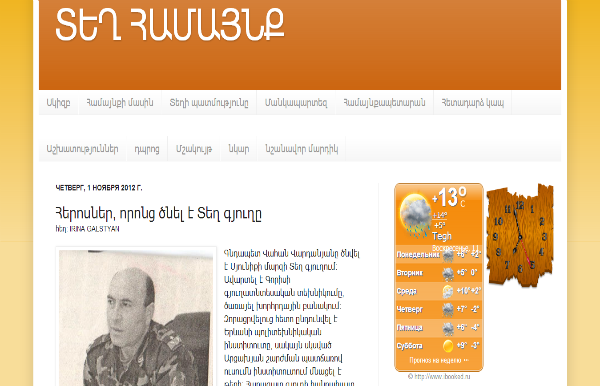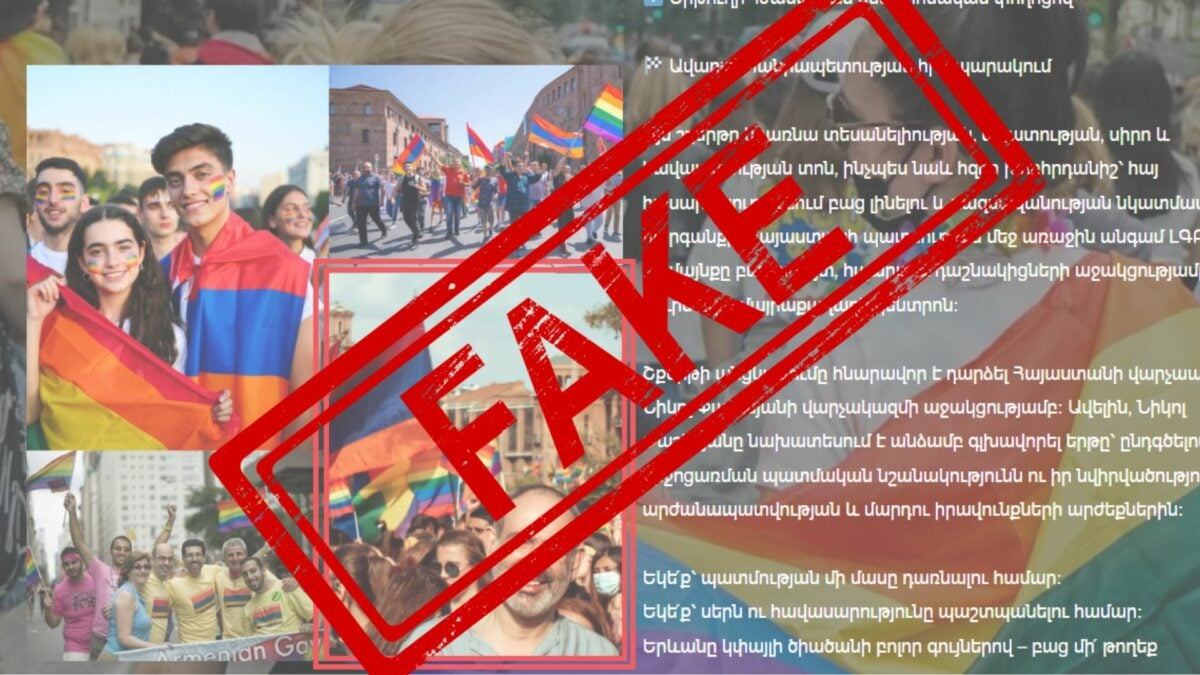It’s been one month now that 10 villages in Goris, in the southern Armenian province of Syunik, have their own blogs, thanks to active youth from the village communities. The youth, using modern information technologies, aimed to highlight their villages and make them known to the entire world.
The young bloggers have uploaded a wide variety of material about their villages, from descriptions of history to present-day news and events.
The youth are quite engaged and are constantly updating the blogs with new information. The idea to create blogs for the villages in the region of Goris came from the Syunik-based Rights Information Center NGO. The project was realized within the framework of the “Information as a means for community development” program carried out with the assistance of the RA Minister of Sport and Youth Affairs.
About a month after the blogs were launched, on Nov. 1, they already had 11,300 visitors. Prior to launching the blogs, training sessions were organized for the youth of the chosen 10 villages, Khndzoresk, Verishen, Akner, Khnatsakh, Khoznavar, Vaghatur, Shinuhayr, Qarahunj, Tegh, and Qarashen, where participants learned how to create blogs and master the technical skills necessary to maintain them.
Rights Information Center NGO President Marat Dadunts notes that in selecting these rural communities, they took into consideration the population, the number of youth, and the number of subscribers of internet services in the community.
[[wysiwyg_imageupload:359:]]
“The program aimed to foster cooperation and access of information to the community with the help of modern media tools and the participation of local youth. Thus, we created active youth groups in 10 village communities in Syunik — each with 5–7 members, and we developed their competencies in the use of modern information tools, after which we prepared the blogs with the help of those youth,” he says.
Now, the blogs created for the villages — Khndzoresk, Verishen, Akner, Khnatsakh, Khoznavar, Vaghatur, Shinuhayr, Qarahunj, Tegh, and Qarashen — are updated with new content being posted regularly, outlining the problems of the village, famous people, and events and programs carried out in the community.
Harutyun Harutyunyan, managing the blog for the village of Shinuhayr, thinks the project is a great idea and believes that creating a blog is absolutely necessary in the modern digital age.
He believes that the blog will play a big role in the life of the village, which will introduce itself to the world, and possibly the issues raised on the blog will be resolved.
“Currently, I’m the only author, but I intend to teach other youth in the village, to increase the number of authors, because there’s a lot of work to do, and I can’t manage it on my own. If we do it right, we’ll achieve success. There’s no online platform to place Shinuhayr on the map: there was a group on [the popular Russian social networking site] Odnoklassniki, but it wasn’t enough,” says Harutyun.
[[wysiwyg_imageupload:360:]]Irina Galstyan, author of the blog for Tegh, is very excited to be involved in the project and is doing so voluntarily, while other villagers help in providing written content, different documents, and photos.
Irina has managed to post content on the history of the village, the school and the old church; veterans of the Nagorno-Karabakh War; current high-ranking officials; and local artists.
Visitors to the website are those originally from Tegh but who don’t live in the village today. Through the blog they follow events happening in the village, participate in the life of the village, and sometimes make new discoveries from information posted on the blog.
The remaining 8 bloggers work using the same methods, not falling behind their colleagues and being actively involved in the task.
Meri Soghomonyan, Kapan






